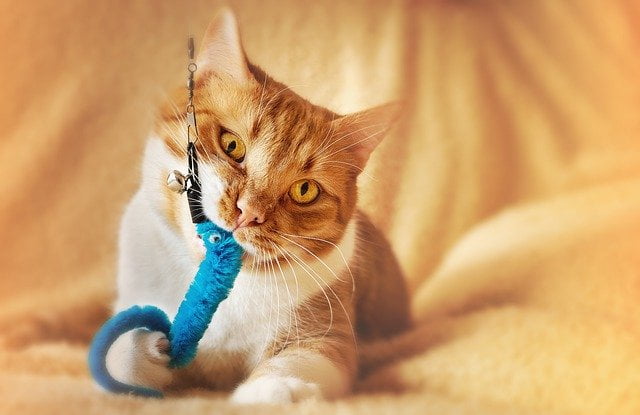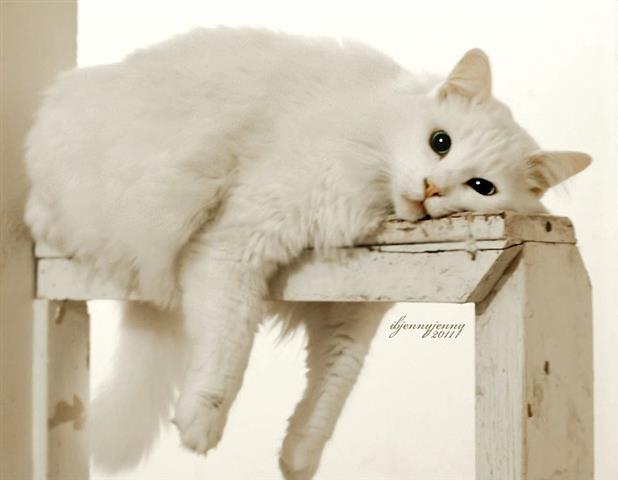In general, domestic cat need to express predatory behaviour. In other words they need to hunt to feel normal. A sizeable chunk, perhaps 60% of a cat’s life would be removed from them if they had no opportunity to express predatory behaviour. As there are many domestic cats living full-time inside their home there is an obligation upon the owner who confined them to play with them. This substitutes predatory behaviour.

Substitute for hunting
Play as a substitute for predatory behaviour is an essential aspect of cat ownership. I don’t think enough emphasis is placed upon it. I believe that a lot of cat owners assume that their cat will be content if left alone nearly all the day without introducing any play into their lives because they consider their cats to be independent-minded.
Negative implications
Arguably, there are significant welfare implications for a domestic cat when opportunities to play are not provided. These implications could include increased aggressive behaviour towards people and cats (in multi-cat households) and of course obesity. You may have heard that veterinarians state that there is almost an epidemic of obesity amongst the domestic cat population in America and I have to admit in the UK. This reflects obesity amongst their owners. Play helps to prevent obesity.
Emotional aspect
I also believe that there will be, to varying degrees, negative emotional implications. Your cat is liable to be less contented. She may become stressed which can lead to health problems such as cystitis and OCD (expressed as over grooming leading to hair loss). It is difficult to tell if your cat is unhappy and stressed. This is why it is easy to get away with not playing with your cat. You see no consequence but in the long term there might well be consequences.
Exercise and bonding


Over and above the emotional aspects of play, it is a form of exercise which must be good for a cat. In addition, perhaps more importantly, it increases the bond between human and cat. It is a fantastic way to interact with your cat. If your cat is timid and reluctant to interact with humans because perhaps she is not fully socialised, play will go a long way to resolving the problem.
Boredom

There is also the important problem of feline boredom. In the wild the domestic cat would be hunting for most of the time other than sleeping and resting. Take hunting away and you get boredom. You get inactivity, discontent and obesity and potential health problems.
How much?
I understand the difficulties in playing enough with your cat. I don’t play enough with my cat, I freely admit that. However he is, nowadays, an indoor-outdoor cat. He has plenty of opportunity to express his hunting desires in his own way and in his own time. Therefore there is less of a demand upon me to find a substitute. I would argue that a good cat guardian could play for about half an hour per day in perhaps three sessions. That is three sessions of 10 minutes each session. I don’t think that that is an awful lot.
Multi-cat households

Two cats can play with each other. This is one of the great advantages of having two cats who get along well. Under these circumstances the responsibility of the owner to play is alleviated at least to a certain degree.

